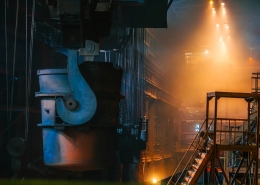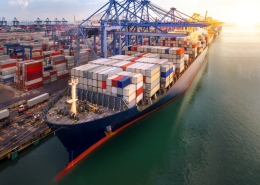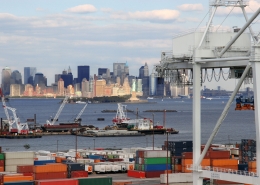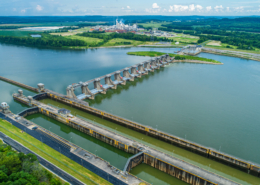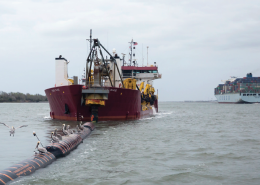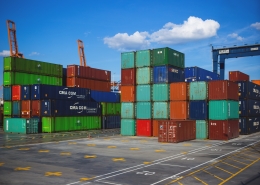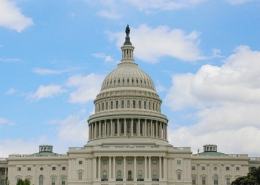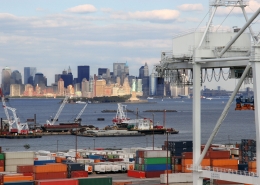The House Subcommittee on Environment, Manufacturing, and Critical Materials held a markup on July 12 to discuss 3 bills that will have an impact on the electric vehicle transition in the United States. The 3 bills under discussion were:
- H.R. 1435, The Preserving Choice in Vehicle Purchases Act: this bill would amend Section 209 (which deals with state waivers) of the Clean Air Act to prevent the EPA from granting waivers for states that have directives to either “directly or indirectly” limit the sale or use of new vehicles with an ICE (internal combustion engine). The bill also revokes prior waivers received since January 2022 by California state under Section 209 if the motor vehicle standard either “directly or indirectly” limits the sale or use of new vehicles with an ICE.
- H.R. 4468, The Choice in Automobile Retail Sales Act of 2023: this bill would prevent the EPA from finalizing its proposed rule titled “Multi-Pollutant Emissions Standards for Model Years 2027 and Later Light-Duty and Medium-Duty Vehicles.” It also amends the Clean Air Act to prevent any previous regulations that mandate the use of a particular technology or result in limited availability of new vehicles based on engine type and gives the EPA two years to update those regulations.
- H.R. 4469, The No Fuel Credits for Batteries Act of 2023: this bill would clarify that the EPA is not authorized to generate credits (eRINs) for electricity generated from renewable fuel under the Renewable Fuel Standard (RFS) program and prohibits the EPA from using or transferring any eRINs before this bill is enacted.
Subcommittee Chair Rep. Bill Johnson (R-OH), in his opening remarks, said Congress must prevent the Biden administration from imposing EV mandates that do not align with preferences of the consumers and would force change at a pace and scale that would directly increase costs for working Americans.
Ranking Member Rep. Paul Tonko (D-NY) said that zero emission vehicles are increasingly in demand by the American consumers as they realize that they will reduce emissions and meet most of their driving needs while saving them fuel and maintenance costs. He said that IIJA and IRA are enabling building of local supply chains for manufacturing of EVs, batteries, and charging infrastructure, and are setting up America to retain its position in auto manufacturing while supporting American jobs. He added that the 3 bills under consideration will undermine latest market trends and prevent EPA from achieving its mission to reduce harmful emissions.
Republican members of the subcommittee, Reps. Cathy McMorris Rodgers (R-WA), John Joyce (R-PA), Jay Obernolte (R-CA), and Dan Crenshaw (R-TX), highlighted these key issues in their statements:
Mobility choice and government overreach: they argued that a widescale EV mandate will take away mobility choice from working and middle-class Americans by making cars less reliable and more expensive. Rep. Joyce said that government overreach is threatening to put cars, SUVs, and trucks out of reach of hardworking Americans. He further said that 17 states (representing 40% of auto market) have already adopted California’s clean air regulations and that any EV mandate that large is a de-facto mandate on the entire nation, representing a decisive shift in national policy. Rep. Obernolte said that unsold inventory of electric vehicles is almost twice as a high as ICEs across the nation even with a subsidized purchase price of EVs. He said this is a sign that Americans are rejecting EVs.
China’s dominance: Rep. Rodgers spoke at length about how the shift to electric cars in the United States plays to China’s interests as China currently dominates the supply chain and manufacturing of EVs and batteries. She said, “Biden said America will own the future of the automotive market, but unfortunately, by using the EPA to institute government mandates and restrictions, he is handing the keys of America’s auto future to China.”
Grid capacity: Rodgers, Joyce, Crenshaw, and Obernolte spoke about the impacts of EVs on an already strained electricity grid. Rep. Rodgers said that California, where a mere 4% of total cars are electric, can’t handle increase in energy demand on their grid. Rep. Obernolte spoke about the problem of high operating costs with EVs, especially as electricity is becoming more expensive.
Rep. Crenshaw said that construction of an EV emits 70% more CO2 emissions than construction of an ICE vehicle (which he noted is statistic from EV manufacturers). He further added that, while EVs achieve a break-even point at 70,000 miles, short ranges of electric cars don’t allow people to get to such mileage quickly.
Democratic members of the subcommittee, Reps. Frank Pallone (D-NJ), Raul Ruiz (D-CA), and Nanette Barragan (D-CA) touched upon a few key themes in their remarks:
Climate and public health impacts: Rep. Pallone said, “Climate crisis is here. We must address it while also growing our economy for the future by investing in a clean energy economy.” He said that the three bills are anti-science, anti-innovation, and anti-progress and will move us backwards in our efforts of cleaning up and modernizing the transportation sector. Rep. Ruiz quoted figures from the “Driving to Clean Air” report from the American Lung Association, stating that 89,300 pre-mature deaths can be prevented by moving to 100% zero emissions while realizing $978 billion in public health benefits. Rep. Barragan said that the concentration of pollution from vehicles and trucks is intense in EJ (environmental justice) communities with residents suffering higher rates of cancer and respiratory ailments.
Rights of states: Rep. Pallone said that the bills being considered infringes on states’ rights to voluntarily adopt higher emission standards to protect people from dangerous air pollution. Rep. Tonko said that the bills constitute a blatant attack on states that are taking ambitious steps to cut emissions.
Representatives Ruiz, Barragan, Clarke each presented amendments to the bills, none of which got a majority agreement among the subcommittee members that were present. Rep. Ruiz sought an amendment to strike language in H.R.1435 that would require EPA to go back and revoke all waivers granted after Jan 2022. Democratic members argued that such a revocation would create uncertainty for the industry with disastrous ripple effect on the entire vehicle market. Rep. Barragan’s amendment proposed to prevent H.R.1435 from going into effect unless the Director of EPA determines that it will not harm the public health of EJ communities. Rep. Yvette Clarke (D-NY)’s amendment to H.R.4468 proposed to delay the implementation of the bill until the EPA administrator certifies that it will not harm public health.

